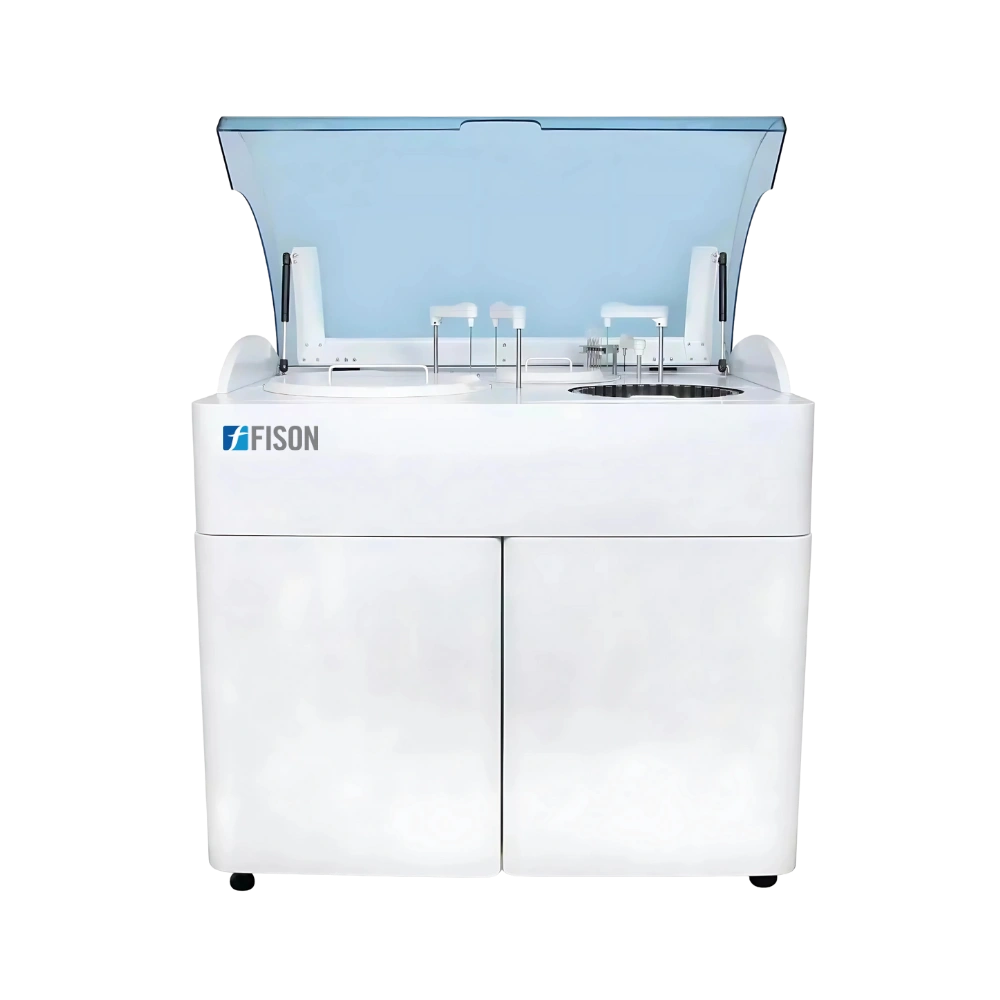
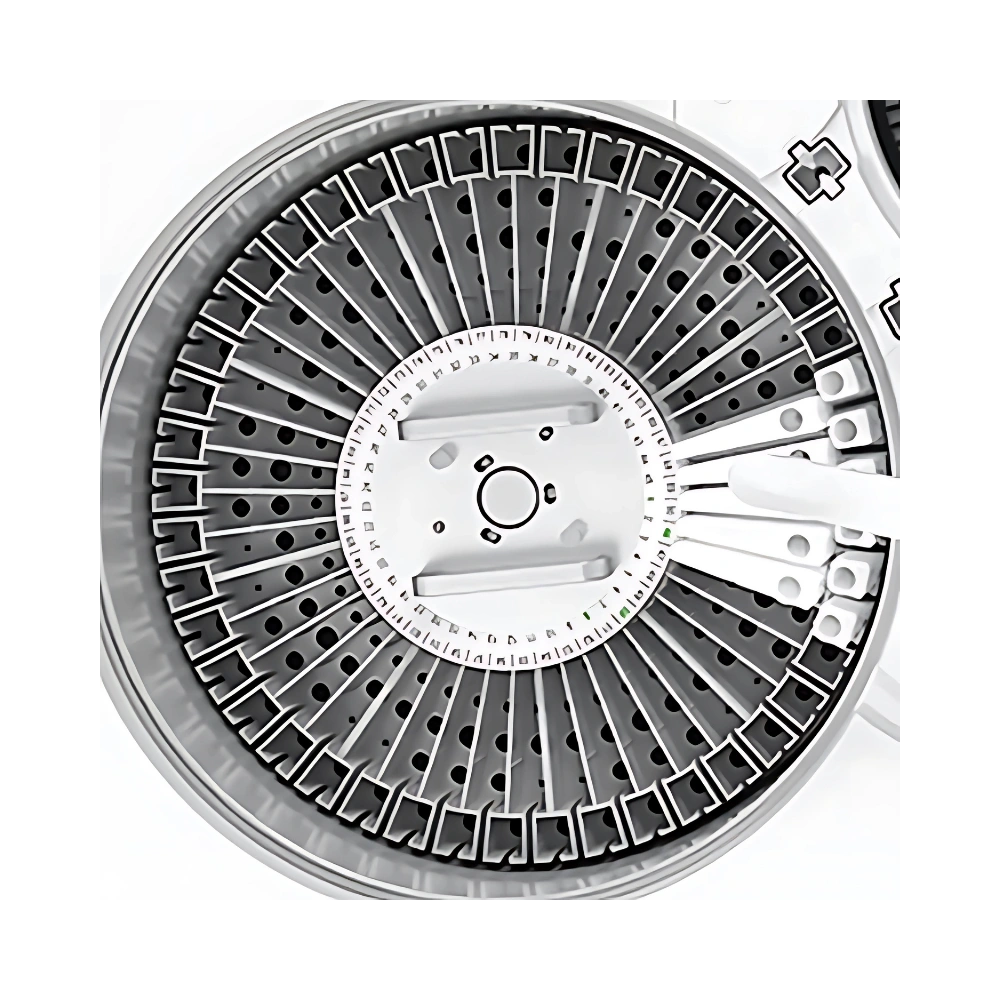
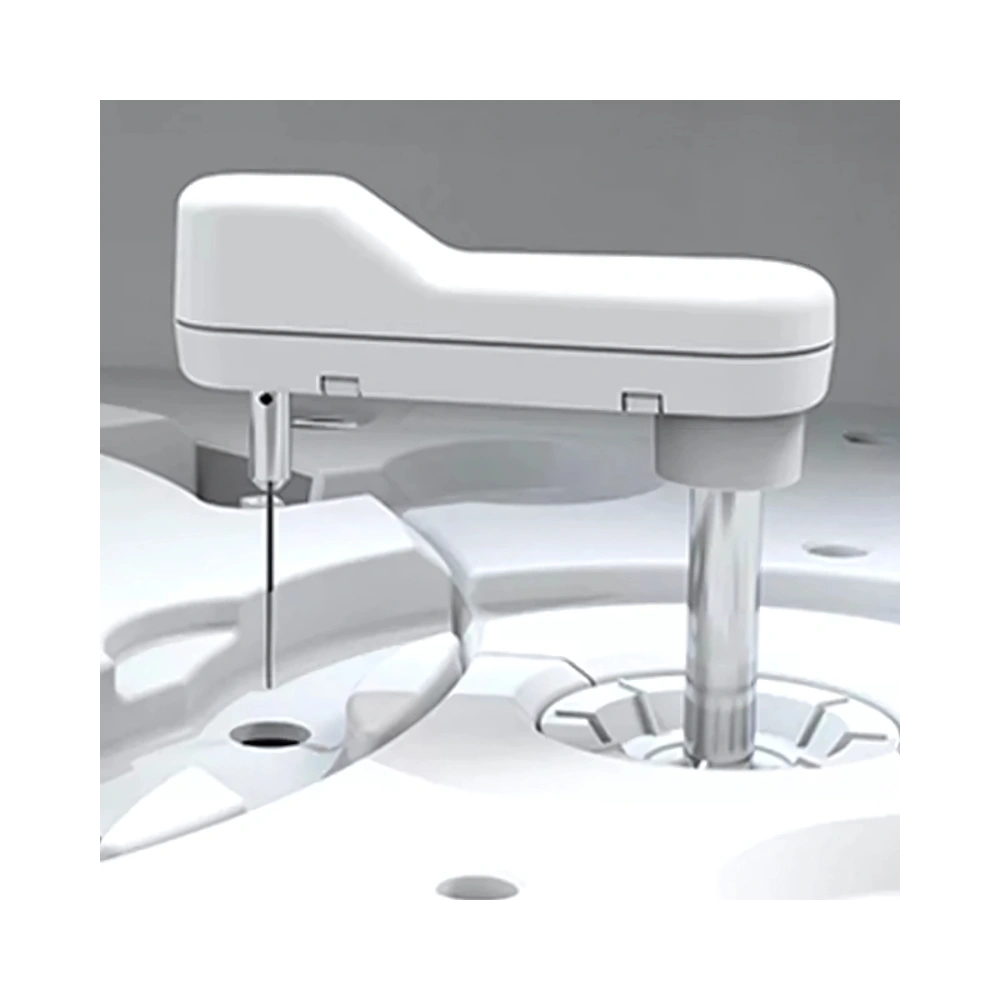
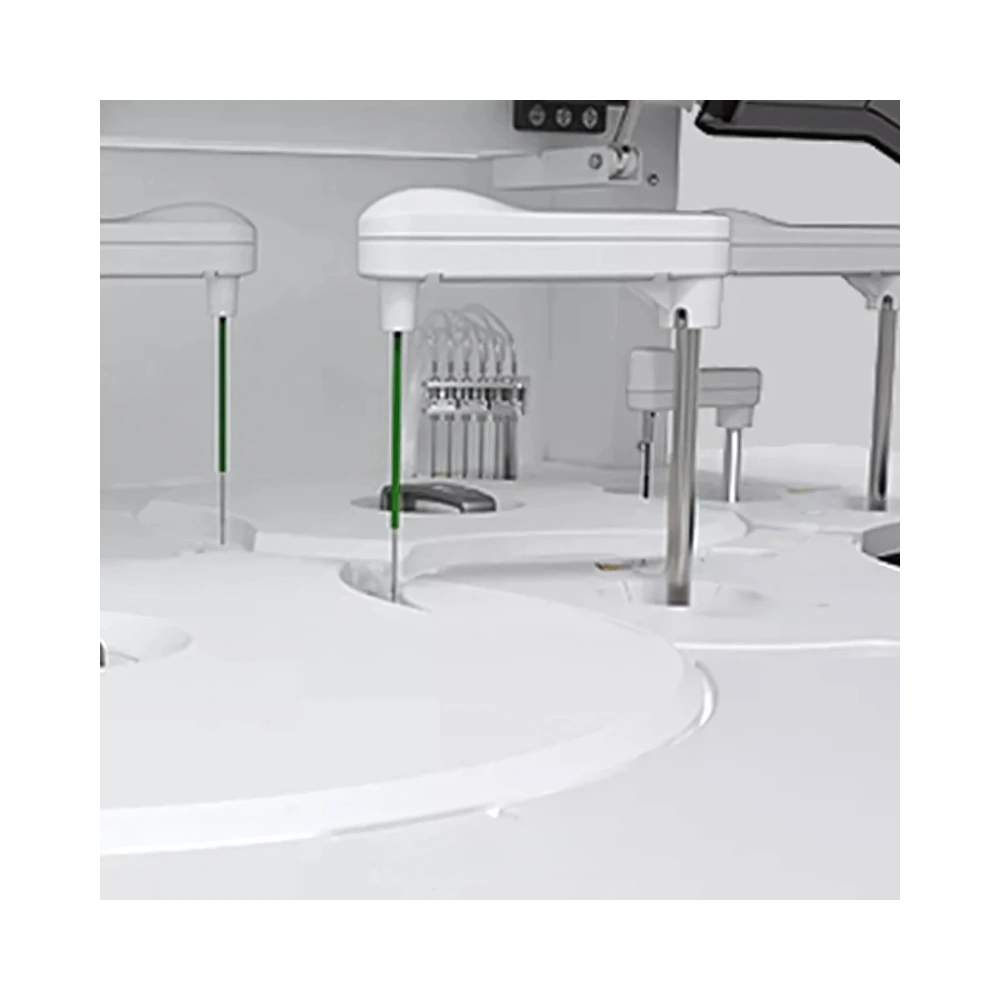
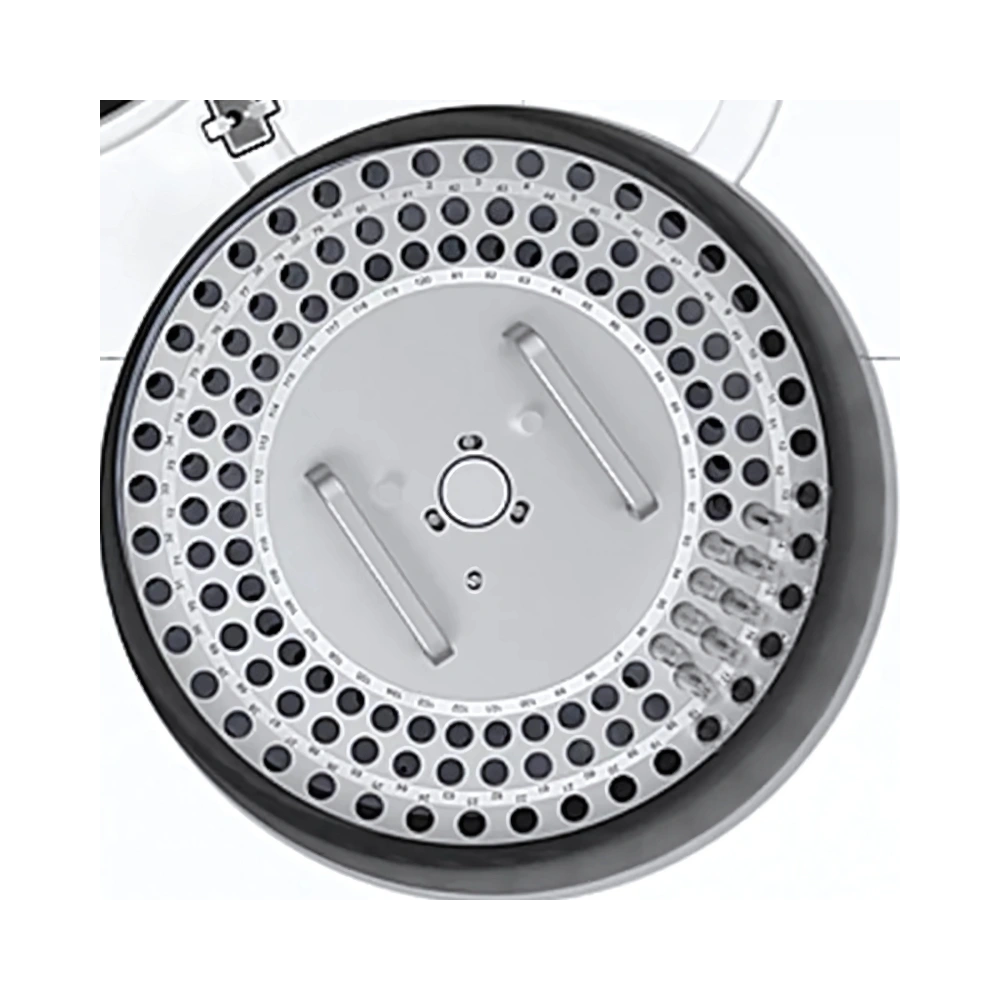
Automatic Chemistry Analyzer FM-ACA-B202
Automatic Chemistry Analyzer FM-ACA-B202 performs up to 400 tests per hour, supporting both clinical and emergency workflows. Features include a high-capacity sample tray, minimal reagent consumption, and real-time clot detection. Integrated ISE module enhances test versatility, covering electrolytes alongside standard biochemistry panels. Refrigerated reagent compartment and auto-calibration ensure consistent performance and accuracy.
Specifications
| Sample Volume | 2 to 30 µl (0.1 µl step) |
| Throughput | 400 tests/hour |
| Sample Dilution | Automatic |
| Sample Positions | 120 pcs |
| Reagent Positions | 90 pcs |
| Reagent Volume | 20 to 300 µl (1 µl step) |
| Water Consumption | 15 L/h |
| Analysis method | One-point end, Two-point end, Fixed-Time, Kinetics |
| Temperature | 2 to 14°C |
| Reusable Cuvettes | 90 pcs |
| Reaction volume | 150 to 350µL |
| Reaction time | 10 minutes |
| Reaction temperature | 37+0.1°C |
| Light source | Halogen lamp |
| Wavelength | 340 to 700 nm |
| Absorbance range | 0. to 4.0 Abs |
| Resolution | 0.0001 Abs |
| Calibration | Linear and non-linear |
| Mixer | Independent mixer |
| Washing System | Automatic 2 to 6 step washing |
| Interface | USB |
| Operation system | Windows XP, Windows 7, Windows 8 |
| Probe Features | Automatic cleaning, liquid level detection, collision protection, Automatic depth adjusting |
| Power consumption | 1000 VA |
| Power supply | 110 to 220 V, 50/60 Hz |
| Dimension (L×W×H) | 1065 × 745 × 1120 mm |
| Net Weight | Less than 23 kg |
Frequently Asked Question
1: Why is continuous access important in a high-throughput analyzer like FM-ACA-B202?
It enables uninterrupted workflows by allowing STAT or late-arriving samples to be loaded without halting routine testing, reducing turnaround delays.
2: How does FM-ACA-B202 ensure reliable performance with minimal sample volume?
Advanced liquid-level sensing and clot detection maintain precision even with 2 µL samples, reducing redraws and preserving sample integrity.
3: What role does automated maintenance play in sustaining analyzer uptime?
Features like cuvette washing, probe cleaning, and real-time system diagnostics prevent buildup-related errors and reduce manual servicing interruptions.
4: How does the analyzer adapt to variable sample conditions like hemolysis or lipemia?
It uses dual-wavelength photometry and intelligent rerun logic to detect and compensate for interferences, ensuring valid results.
5: In what ways does FM-ACA-B202 support regulatory audits and traceability?
The system logs QC, calibration, and error records in encrypted format, fully traceable and exportable via LIS for ISO 15189 and CE-IVDR compliance.